The Keys to WhatsApp’s Whirlwind Success
Prodotti iconici episodio 005
WhatsApp has had a unique, and somewhat unlikely, rise to mobile messenger fame. 🚀
Founded in 2009 and famously acquired by Facebook in 2014 for $19 billion, WhatsApp boasts more than 1.5 billion monthly active users worldwide (as of December 2017) — making it far and away the most widely used mobile messenger app in the world.
Even Facebook CEO Mark Zuckerberg once said on a conference call in regards to WhatsApp’s growth, “No one in the history of the world has done anything like that.”
Allora, cosa rende WhatsApp così speciale? Che cosa c'è in questo prodotto che ne ha determinato l'ampia popolarità?
Let’s explore further! 🕵
WhatsApp builds a product, not a company
The idea for WhatsApp stemmed from co-founder Jan Koum’s annoyance of missing phone calls at the gym. Because of this, he and co-founder Brian Acton then decided to build an app that could let their friends know of their “status” when they were unavailable.
As Koum once explained it, “We didn’t set out to build a company. We just wanted to build a product that people used.”
The beauty of WhatsApp is its single-minded product focus. It’s a simple platform that is well-built and reliable, all while maintaining the privacy of the users. 🔐
WhatsApp’s priority from early on was to create a clean, lightning fast communications service that works flawlessly.
Although the app didn’t take off right away, they later added the messaging aspect of the product and it started to gain traction.
And gain traction it did: it’s estimated that more than 1 million new users join WhatsApp and 55 billion messages are sent on the platform every day. 😱
Inoltre, gli utenti condividono 4,5 miliardi di foto e un miliardo di video al giorno.

A differenza della maggior parte delle startup, questa crescita è stata ottenuta senza alcun marketing. E nonostante questi numeri da capogiro, WhatsApp opera ancora con meno di 100 dipendenti (a parte le risorse che Facebook sta ora assegnando loro).
From day one, WhatsApp has focused on making the best messaging app possible — every feature and improvement that has followed has been with this goal in mind.
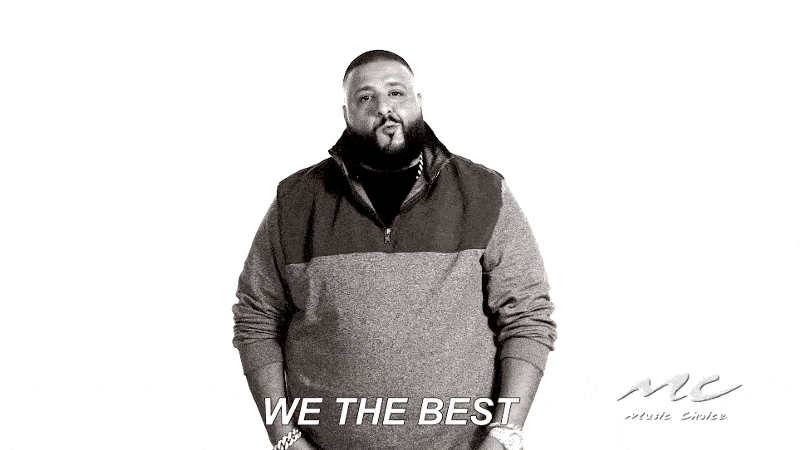
As Koum once pointed out, “WhatsApp’s extremely high user engagement and rapid growth are driven by the simple, powerful and instantaneous messaging capabilities we provide.”
The co-founders also haven’t been ones for fame and attention. Koum and Acton wanted a different company from the beginning — they didn’t even have a sign outside their office door.
In an interview with Wired, Acton said, “We’re the most atypical Silicon Valley company you’ll come across. We were founded by thirtysomethings; we focused on business sustainability and revenue rather than getting big fast; we’ve been incognito almost all the time; we’re mobile first; and we’re global first.” 🌎
Un'esperienza senza pubblicità
As WhatsApp does not store users’ messages and uses end-to-end encryption, it has never placed advertisements within the interface.
Le ragioni sono molteplici.
First, they didn’t want to make the user the product. They wanted to build a service that people wanted to use because it worked. They didn’t want to take user data and turn it into targeted ads.
As they don’t store messages in order to maintain the privacy of the user, they negate the ability for companies to pay for targeted ads on the platform (this is true as well vice versa).
Second, they felt that they didn’t want to have people try to avoid ads in the app.
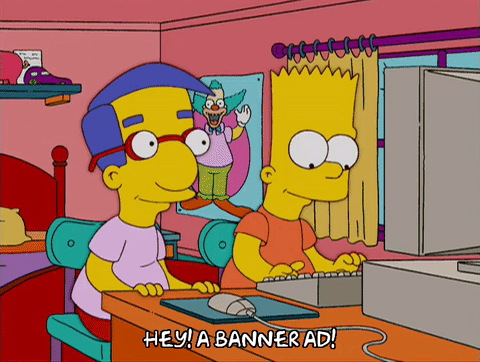
As WhatsApp explained, “Ads suck and ads suck even more on the small screen of a mobile device. We want to provide the best user experience and doing advertising will only get in the way of clean UI.”
They also said on their blog, “No one wakes up excited to see more advertising, no one goes to sleep thinking about the ads they’ll see tomorrow. We know people go to sleep excited about who they chatted with that day…We want WhatsApp to be the product that keeps you awake…and that you reach for in the morning. No one jumps up from a nap and runs to see an advertisement.”
In questo modo, WhatsApp mantiene l'obiettivo di offrire un'esperienza d'uso affidabile e priva di espedienti.
Finally, they figured they could charge a tiny fee directly. Which they did — for a little while, at least. 💵
WhatsApp used to have a 99 cent annual fee, but this was later killed because it wanted to reach more users in places like India and Brazil, as these users don’t necessarily have a credit card or the infrastructure in place to make payments.
While it’s a bit unclear how exactly WhatsApp is making up revenue for the lack of a subscription model, it appears that the shift toward more enterprise uses will have something to do with it (more on that in a minute).
Focus on the product, not tech for tech’s sake
That’s not to say WhatsApp’s tech isn’t great — but it definitely wasn’t an “aha!” moment or some mind-blowing technological breakthrough that created the multi-billion-dollar company.
WhatsApp essentially solved problems by using tools and tech that were already available — not by reinventing the wheel.
So, in a nutshell, the success of the product is defined mostly by the product itself, not the tech — let’s explore a few of the attributes that make the product unique.
First, a major aspect of the product, which seems simple now, is the fact that they built a messenger that connects to contacts from a phonebook. 📲
Molte altre piattaforme di messaggistica richiedono numeri o nomi utente separati, ostacolando l'esperienza dell'utente. Il modo in cui WhatsApp ha deciso di lavorare è stato all'epoca innovativo.
Second, before WhatsApp, there was the pain point of people not knowing if someone received their message. 🤷
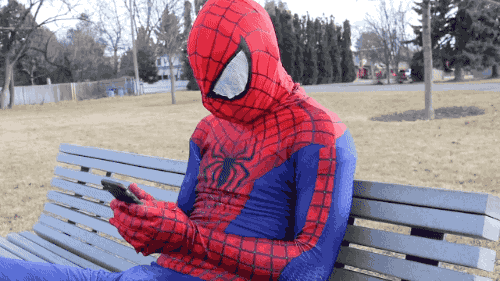
Gli SMS possono essere volubili e non tutti sono sempre davanti al computer per ricevere un messaggio Skype, quindi avere una piattaforma che funziona con il telefono è stata un'intuizione di WhatsApp che ha aiutato il team a costruire qualcosa di nuovo, utile e affidabile.
In terzo luogo, WhatsApp ha capito subito che la focalizzazione del prodotto lo rendeva molto più potente. WhatsApp sapeva cosa volevano i suoi clienti e si è attenuta ad esso.
In questo modo si è evitata la tentazione di fare più cose contemporaneamente e di perdere di vista l'offerta principale.
Finally, they’ve understood the importance of immediately setting up everything in a scalable way. Their way of working has stayed virtually the same since the beginning.
Mix these aspects with the fact that they localized to different languages early on — thereby understanding the need to connect with customers globally — and you have a recipe for success. 👩🍳
WhatsApp democratized messaging, calls and video chat
Anche prima che WhatsApp eliminasse i 99 centesimi di abbonamento, l'azienda aveva portato ai suoi utenti la messaggistica mobile al prezzo più basso di sempre.
Poiché in tutto il mondo ci sono molti posti che fanno pagare gli utenti per ogni SMS o MMS inviato, WhatsApp era (ed è tuttora) l'alternativa più ovvia per l'invio di messaggi.
In seguito, il team ha aggiunto nuove funzionalità alla piattaforma di messaggistica esistente, come le chat di gruppo, la condivisione della posizione e la messaggistica vocale.
This means that you can call, text or video chat with any other user in the world — for free. 📞
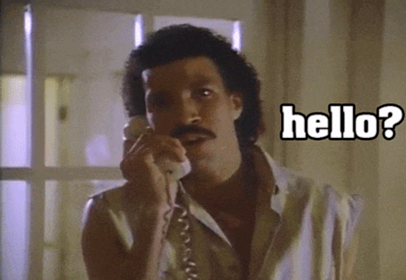
And you didn’t even need to sacrifice your personal data for this free service!
Reliable, Fast, Secure
It’s safe to say that WhatsApp is optimized for reliability — as we touched on earlier, when you send a message on WhatsApp, you know it will get there.
Inoltre, la già citata crittografia end-to-end di tutti i messaggi inviati dimostra ulteriormente la sua sicurezza.
WhatsApp è anche più veloce di, ad esempio, iMessage.
The grey check mark that appears when you send a message in WhatsApp is instantaneous — giving users the feeling of speed compared to the whoosh sound or the loading bar that is part of the iMessage experience…it just feels slower, even if it actually isn’t. ✅

Simply put: WhatsApp’s strengths are its simplicity, performance and service reliability.
Nuovi casi d'uso, infinite possibilità
WhatsApp has recently found new applications for its product — even in an enterprise context.
A settembre, l'azienda ha annunciato che sta costruendo e testando nuovi strumenti per un prodotto WhatsApp Business, sia per le piccole imprese che per una soluzione enterprise per le aziende di grandi dimensioni.
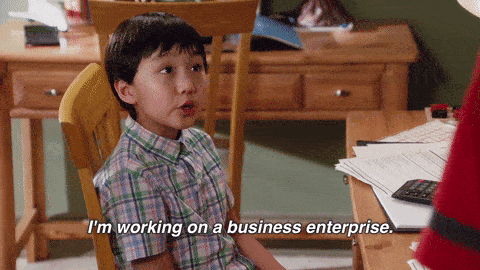
One such example of this in action is from the airline KLM, which now uses WhatsApp as a way to connect with customers regarding flight times, schedule changes and more. ✈
This tool is quite similar to the Messenger services offered through Facebook — so it will be interesting to see if WhatsApp takes off in a similar fashion (especially since this will probably be the route they take to build their revenue model).
Gli utenti di WhatsApp hanno anche iniziato a trovare nuovi modi per utilizzare l'applicazione. Alcuni esempi: le aziende che utilizzano la funzione di gruppo per la comunicazione interna dei team, i ristoranti locali che la usano come mezzo per ordinare cibo a domicilio e persino aziende come Ace & Tate che gestiscono il loro servizio clienti sulla piattaforma.
WhatsApp goes to show that even with a simple product, the uses and possibilities can be endless. 🎉
As WhatsApp continues to grow and connect people globally, we’re excited to see where it’s headed next!
What do you love most (or dislike most) about WhatsApp? Let us know in the comments! ✨
Volete scoprire altri prodotti iconici? Leggete l'intera serie qui!
Speriamo che questo post vi sia piaciuto. Se vi è piaciuto, spargete la voce!
Per ulteriori informazioni su startup, growth marketing e vendite:
- 22+ Best Sales Podcasts You Should Check Out in 2024 - 21 Dicembre 2023
- Scritture di chiamata a freddo per esseri umani reali - 21 settembre 2023
- Gli oltre 25 migliori strumenti di vendita per aiutare il vostro team ad avere successo - 10 Agosto 2023
